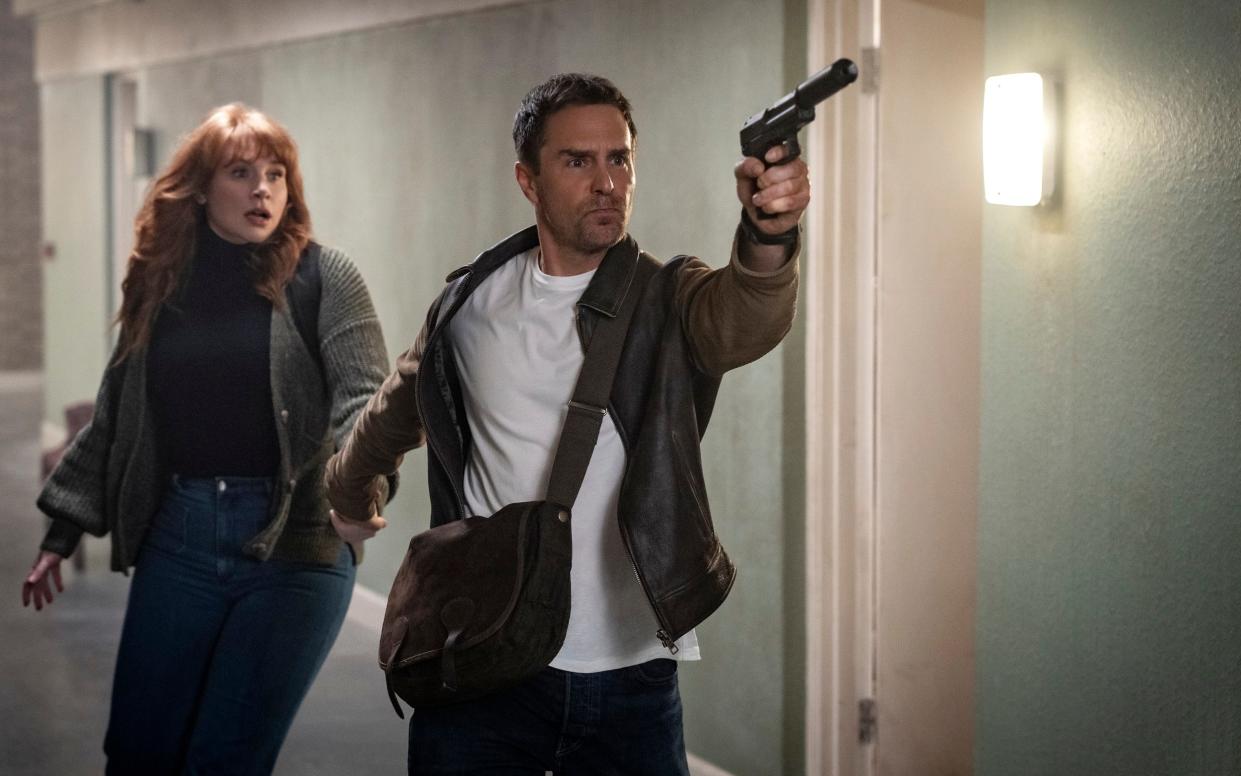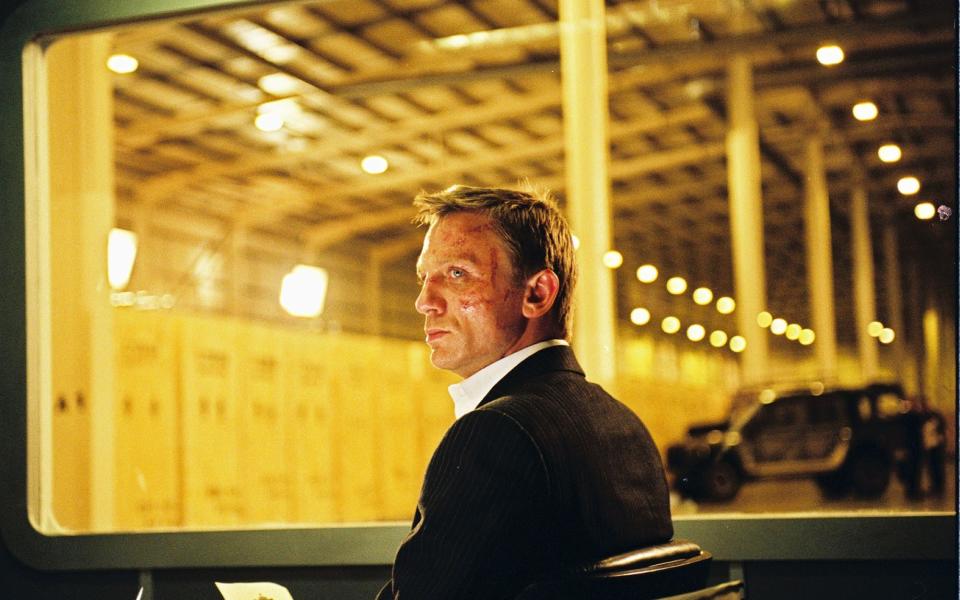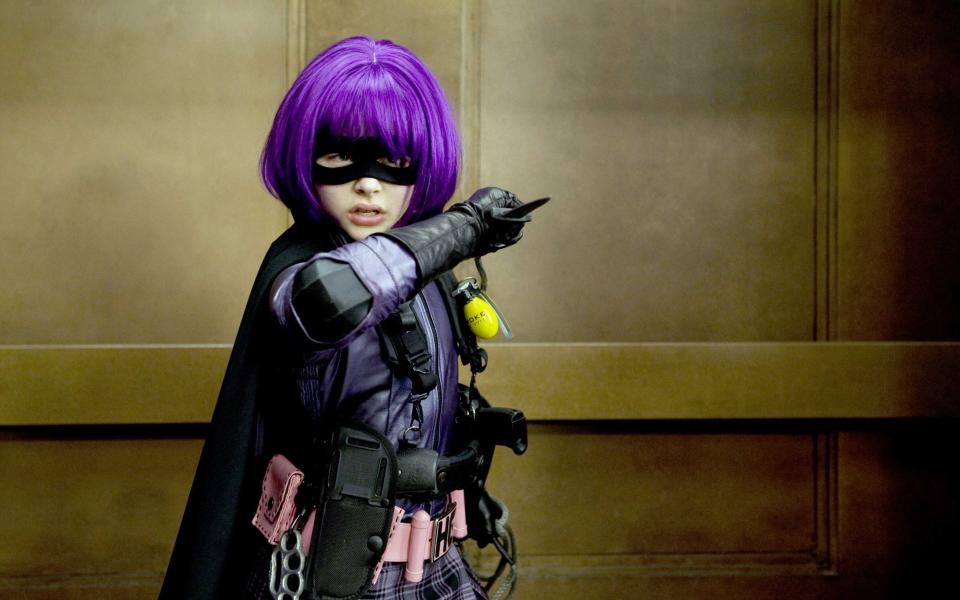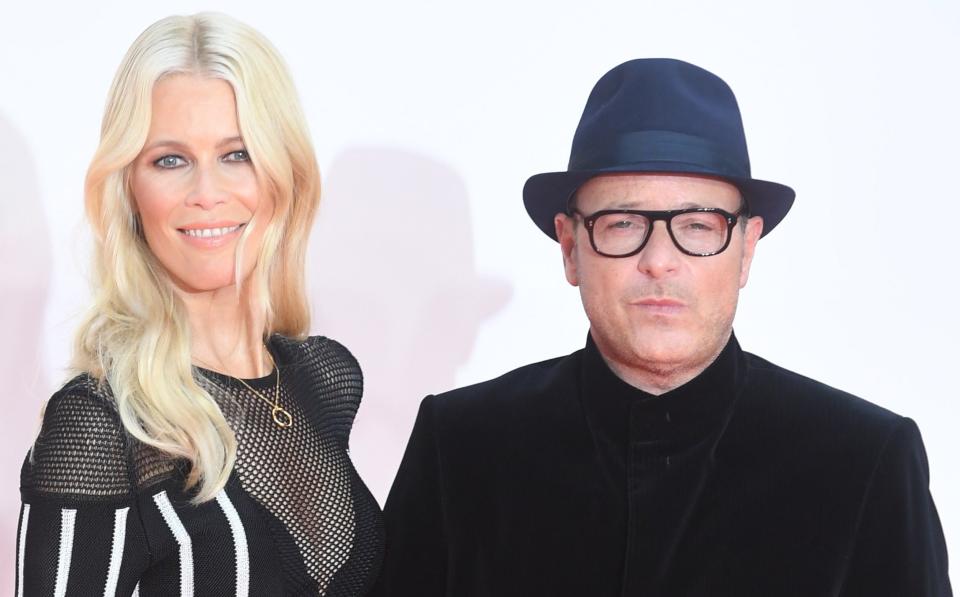Auteur or enemy of good taste? Why Matthew Vaughn is the most divisive director in Hollywood

Matthew Vaughn was the director of Casino Royale for one day. If the gig had lasted longer, it would have reunited him with his Layer Cake star Daniel Craig, whose casting as 007 was largely ascribed to his cool and charismatic performance in Vaughn’s 2004 crime drama, and established him as an A-list filmmaker immediately.
As Vaughn recounted the story in 2023: “It was a really weird time when I got a phone call saying, ‘Would you be interested in meeting about doing Casino Royale?’ And I was like ‘oh my God, yes, I would.’ So I had this. I read the book again and went and met with them. We all got on, actually, I thought, really well. And then, welcome to Hollywood, I got a phone call from MGM saying ‘you’ve got the gig, don’t tell anyone.’”
Vaughn may have put the Bollinger on ice, but there it remained. He met with the Bond producers for lunch, offered his ideas for the film – including the casting of Craig, which was met with muted approval at best – and, while expecting to be formally offered the position of director, did not receive the nod. As he described it, “So I went home thoroughly confused, and I rang up the chairman of MGM. And I said ‘what’s going on?’ And they said, ah, we spoke too soon, ‘you ain’t got it. And we’re going to cast Daniel.’ And I was like ‘oh, okay.’”
Such roundabout developments are all part and parcel of life in Hollywood. Yet Vaughn’s subsequent career might be seen, in part, to stem from the snub, given that he has made numerous pictures all of which owe a great deal to the James Bond franchise in terms of casting, action scenes and even their musical scores.
His most recent, the meta-picture Argylle, has, unfortunately, proved to be a disaster, flopping on its opening weekend at both the US and international box office and making a mere $18 million in America. This is a disastrously low result for a picture that was budgeted at $200 million, and has also been intended to launch a new franchise, as well as feeding back into the Kingsman series that Vaughn has been shepherding since 2014.
Not only has it met with a critical drubbing and widespread indifference from audiences, but it also looks as if its failure has killed off a would-be series of films before they have even started. And all this despite a tsunami of hype and a star-studded cast (albeit mainly in micro-cameos) including everyone from the singer Dua Lipa and the Oscar-winning Ariana DeBose to the putative lead, Henry Cavill, and the real protagonist Bryce Dallas Howard as the on-screen Elly Conway, an amnesiac spy-turned-novelist. All of a sudden, the decision by the Bond producers not to entrust their crown jewels into his keeping seems like a very wise one.
How the director responds to the failure of Argyll will be fascinating to see. After all, it represents yet another eventful twist in a life that has already been full of them, even at the relatively youthful age of 52. Vaughn was born into an affluent family and believed his father to be the Man from UNCLE actor Robert Vaughn, but subsequently discovered that this was not the case, and that he was instead the son of banker George de Vere Drummond, whose surname he now uses in his personal life.

After quitting university after a few weeks, he first emerged into cinema as Guy Ritchie’s collaborator, producing Lock, Stock and Two Smoking Barrels and Snatch, both of which were successful, and the Madonna farrago Swept Away, which was not. Vaughn then switched from production to direction with the 2004 Daniel Craig gangster picture Layer Cake, which was a critical success that saw Vaughn nominated for a Bafta for Best Newcomer, as well as being a key factor in Craig being cast as James Bond. Mixing gritty thrills with an impressive sense of foreboding, it was an auspicious debut and suggested that Vaughn could have had a serious career as a director of adult-oriented critical darlings.
The filmmaker then wrongfooted audiences by diving into the 2007 fantasy epic Stardust, which was a big-budget special-effects picture with both comic and romantic elements based on a Neil Gaiman novel and had a wildly eclectic cast that included everyone from Peter O’Toole and Robert de Niro to Sienna Miller and (in an early, atypically foppish role) Cavill. It was very successful in Britain, flopped in the United States and gave the world Take That’s popular theme song Rule the World.
In retrospect, the PG-rated film would contain the elements that would define Vaughn’s career subsequently, for good and for ill. It contains stunning action scenes (the slowly escalating set-piece halfway through in which Michelle Pfeiffer’s evil sorceress attempts to entrap and murder the protagonists at a fake inn is remarkable filmmaking, by anyone’s standards), a charming central romance between Charlie Cox’s Tristan and Claire Danes’s “fallen star” Yvaine and some truly god-awful moments of attempted comic relief. De Niro’s dire performance as the cross-dressing pirate Captain Shakespeare is one of this great actor’s worst – amidst stiff competition – and the sub-Ritchie bits of backchat amongst the supporting cast are all cringemakingly embarrassing.

Yet the picture that has defined everything that Vaughn has done since was 2010’s Kick-Ass. Made at the beginning of the current vogue for superhero romps, it is a gleefully subversive and frenziedly violent film that elicits most of its shock value from the character of Chloe Grace Moretz’s Hit-Girl, an 11-year old vigilante groomed by her vengeance-seeking father (Nicolas Cage, no less) to become a one-girl agent of destruction. Hit-Girl spits out profane dialogue with relish (sample line, to a roomful of armed mobsters: “Okay, you c___, let’s see what you can do now”, shortly before she slaughters them all) and steals the film with relish.
It was released to a mixture of approval and horror. Roger Ebert called it “morally reprehensible” while the Guardian’s critic praised it, saying “What I experienced was not so much a moral panic, as a full-scale gibbering fit in the stalls.” It was a commercial hit and suggested that Vaughn’s no-holds-barred assault on any conventional ideas of taste could also be allied to a canny awareness of what audiences would want to see – in this case, as the American ratings board the MPAA described it, “strong brutal violence throughout, pervasive language, sexual content, nudity and some drug use – some involving children.”
If Vaughn’s excellent 2011 X-Men picture First Class is most notable today for Michael Fassbender’s steely and terrifying performance as the vengeance-seeking Erik Lensherr, aka Magneto, than for its director’s (relatively) restrained approach, he would soon throw all understatement aside for his 2014 picture Kingsman: The Secret Service, which introduced Taron Egerton to cinema as a working-class youth who is recruited to an elite secret service unit, which has its headquarters in a Savile Row tailor’s.
As with many of Vaughn’s pictures, it is a very strange mixture of apparently irreconcilable elements. There is an old-fashioned, even stern political message about the importance of hard work and pulling oneself up by the bootstraps – a reminder that Vaughn is one of the few outspokenly conservative A-list commercial filmmakers working today – coupled with gleefully absurd and violent action scenes, most notably a set-piece in which Colin Firth’s Kingsman character Harry, temporarily rendered insane by a poisoned SIM card (don’t ask) massacres a church-full of hate-filled parishioners.
It ends with a smirking, filthy joke in which Egerton’s Eggsy is offered, and receives, anal sex from a young Swedish princess in exchange for saving the world, and her life. Vaughn’s response to the controversy was to describe it as his take on the traditional moments at the end of Bond films when 007 is seen in flagrante with his conquest. “Some bloody feminists are accusing me of being a misogynist,” he said. “I’m like, ‘It couldn’t be further from the truth’. It’s a celebration of women and the woman being empowered in a weird way in my mind, which will cause a big argument again I’m sure. It’s meant to be tongue-in-cheek and crazy”.
A decade on, even the film’s defenders – of which I’m one – still cringe at the moment. Yet the controversy it engendered also spoke volumes about Vaughn’s knack of being able to upset people, combined with his undeniable savvy when it came to marketing his pictures. To promote the release of Kingsman, there was a real-life Savile Row pop-up show that sold versions of the costumes shown in the film, amusingly blurring the lines between fantasy and reality in a rather more successful way than Argylle would later do a decade later. And, of course, it helps that Vaughn’s wife and co-producer, the model Claudia Schiffer, can always be relied upon to add glamour to the red carpet premieres of his films, meaning that they will always grace the front pages of the newspapers.

Kingsman also represented Vaughn moving away from conventional expectations of filmmaking. Through his production company Marv Studios, Vaughn finances his films independently, and then sells them onto larger film studios, meaning that he personally retains complete artistic control over the finished pictures, and presents them as a fait accompli to rapacious distributors. In the case of Kingsman and its sequel, 2017’s The Golden Circle, this proved to be a canny and commercially successful move for everyone involved; both films were hugely profitable, despite being R-rated action pictures that starred a middle-aged man in the lead.
Unfortunately, when it came to 2021’s underrated prequel The King’s Man, post-Covid release patterns meant that it flopped considerably, not least because its more sombre tone wrongfooted those who had come to associate Vaughn with high-velocity, take-no-prisoners absurdity. And now Argylle’s failure has proved that the director’s Midas touch is showing distinct signs of becoming tarnished. How to emerge from this slump?
Vaughn is not a humble man – like most A-list directors – and his announcement that he has already produced another Kick-Ass film, School Fight, made by his stunt coordinator Damien Walters, suggests that he is happy to remain within the sphere of the heightened fantastical films with which he has made his name, for the time being at least.
Yet it takes a certain kind of hubris to make a film that flops quite as hard as his most recent release has done, Although its acquisition by Apple Studios has meant that it is not financially ruinous in a way that a conventional mainstream picture’s failure would have been, it is still a reminder that audiences might be getting bored of his schtick. One problem with his films is that Vaughn seems to find them funnier than many audiences do; he might well be advised to tone down the attempts at over-the-top comedy with his next picture. The Fassbender scenes in First Class, in particular, show just how effective he can be when he plays it straight, rather than straining for laughs.
As Vaughn dusts himself off and plans his next assault on good taste, he might glance over at his near-contemporary Christopher Nolan – not a director who has ever been associated with trying to mug for cheap jokes – and absorb some lessons from his success. Both filmmakers were praised for reinventing previously moribund superhero franchises, and both are distinctive, exciting auteurs whose films are always an event when they’re released.
Yet while Nolan’s march to both commercial glory and awards success with Oppenheimer has been remarkably impressive, he has conducted himself with integrity and straightforwardness. He is regarded by both audiences and his peers as a plain dealer, whose dedication is to making the best possible films he can.
The tricksiness and self-satisfaction of Argylle, meanwhile – complete with a perplexing attempt to use the Beatles’ underwhelming posthumous comeback single Now and Then as a musical leitmotif – represents an artistic dead end for its director. If he is to be offered another crack at 007, he would be well advised to take it, and this time to play it straight. Who knows, the results could yet be magnificent.
